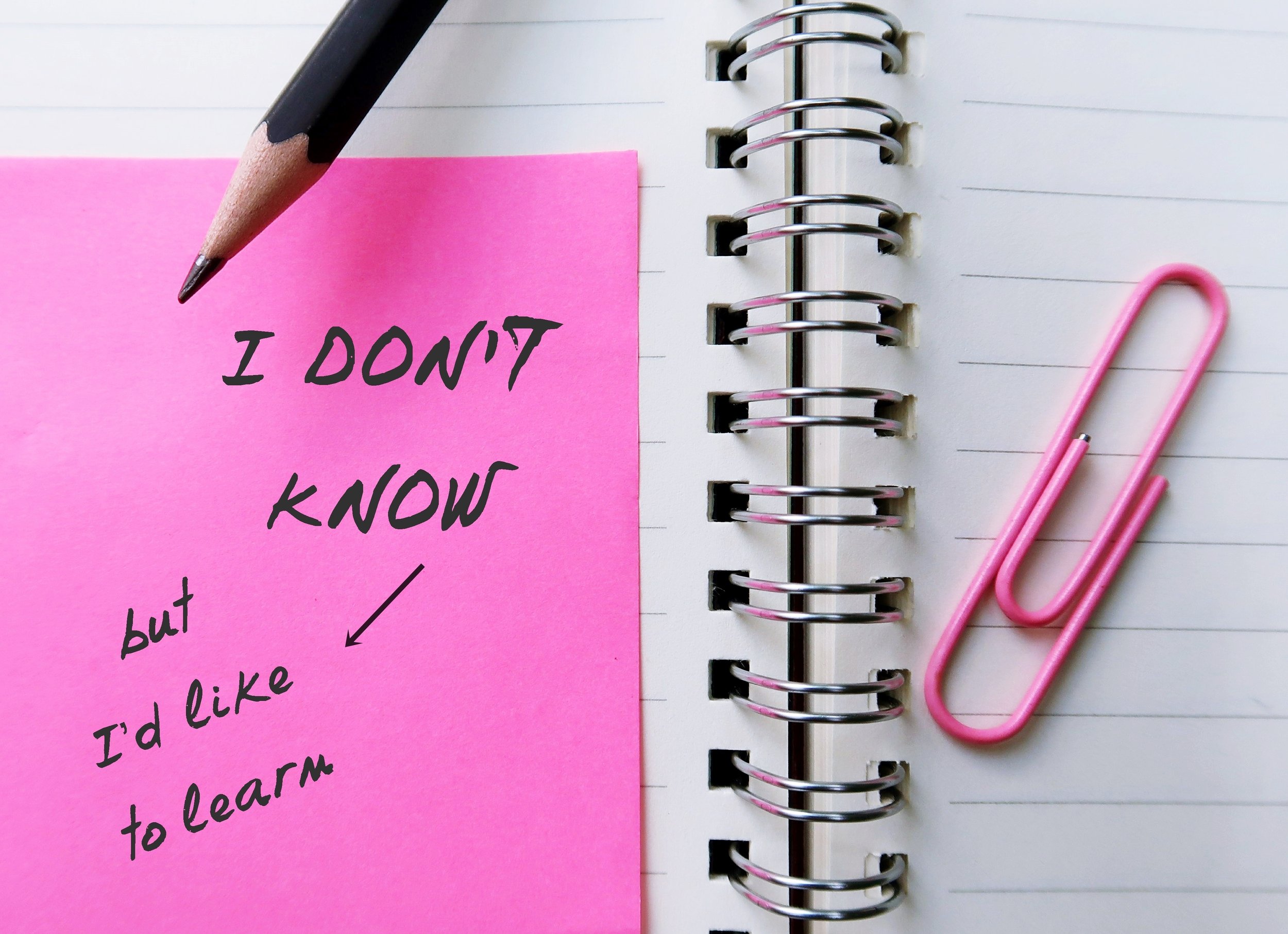Welcoming "I Don't Know"
Every Monday we have a SWIM Team meeting via Zoom. It’s something that helps us leap into the week ahead. These are NOT check-in meetings. (We have strong opinions about check-in meetings, but that’s a topic for another blog!). Each weekly meeting relates to the health of the company and the team. The fourth Monday is always about skill building and it’s my turn to facilitate.
Today, in our weekly meeting we practiced two SWIMmy ways of working.
Shared Accountability: SWIM’s process for helping groups to accelerate their work towards important goals. This is NOT about creating a shared project. It’s about using all of our individual assets to advance one goal.
Group facilitation: At SWIM we take pride in our facilitative strength, so we’re always in learning mode, and today’s learning focused on how facilitation accelerates and inhibits Shared Accountability.
What accelerators were we reminded of today?
Send prompts to the meeting guests in advance! This helps people to feel confident and creates better conversation. Even when facilitators can’t send prompts in advance, giving people “think” time during the session is a great inclusive practice.
Visuals move ideas to insights. Our team jumped into MIRO to share ideas during today’s discussion. Using visuals allowed us to see the emergence of themes as we went along. Grouping and color-coding, identifying patterns and themes, are the actions that move ideas to insights. And, it’s insights that move us ahead when we’re planning.
Knowing who the decision maker is, even when you’re a small team, helps groups move from complexity to clarity. Today, our team had more ideas than our schedule will allow. Rather than trying to do everything and burning out, or feeling paralyzed by the wealth of ideas, we asked the decision maker to make a choice before the next meeting to move us ahead.
One more learning: Towards the end of the meeting we asked everyone to weigh in on the best next steps. One member of the team said,
“I don’t know”
WOW! So often we pretend to know even when we’re a step outside our expertise. Hours after the meeting I’m asking myself, how might welcoming “I don’t know” make us better? My facilitator’s-hunch is that when “I don’t know” enters the room, we shouldn’t think of it as an ending. Instead, how can this honesty deepen team exploration and support individual inclusion?
If I could turn back time to our morning meeting, I might have asked these questions in response to our colleague acknowledging, “I don’t know.”
What additional information might be helpful?
While we’re still trying to find the right way ahead, is there something that strikes you as the wrong way forward?
Is there someone else that we need to confer with before we make this choice? Or is there another shoe that’s going to drop that will shape this project?
How much more time should we take to consider our options?
How comfortable do you feel moving ahead with the opinions of others in the room?
When we welcome “I don’t know” we honor the complexity of our work and missions.
“I don’t know” opens up space for others who might be pondering, but haven’t spoken it.
“I don’t know” isn’t a sign of facilitation failure; it’s a clue to what the group might need to move confidently in the future.
Welcoming “I don’t know” is a chance to create a sense of belonging and inclusion. Our team members need to know that we belong even when we don’t know.
If you’d like to work with consultants who make space for intentional progress, confident decision-making, AND honest moments of “I don’t know” in the face of complexity, please schedule a discovery session.

